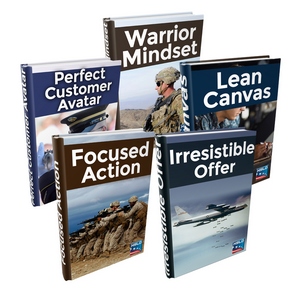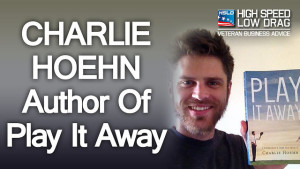 This post is based on the podcast – Charlie Hoehn , Author of Play It Away: A Workaholic’s Cure for Anxiety and Recession Proof Graduates.
This post is based on the podcast – Charlie Hoehn , Author of Play It Away: A Workaholic’s Cure for Anxiety and Recession Proof Graduates.
Welcome to High Speed Low Drag, the podcast for veterans and soldiers transitioning into the civilian world. War veteran John Lee Dumas interviews other veterans who are crushing both business and life, revealing the path they took to achieve outstanding success. Veterans, are you prepared to ignite?
John: Veterans, are you interested in owning your own business? Join me, Antonio Centeno and Tom Morkes, all successful entrepreneurs and veterans, as we talk about what it takes to build your own business from scratch by leveraging the skills you developed while serving your country. And you’ll have the support of a community of veterans that are committed to helping you succeed. Visit highspeedelite.com. That’s highspeedelite.com.
High Speed Nation, John Lee Dumas here, and I am fired up to bring you our featured guest today, Charlie Hoehn. Charlie, are you prepared to ignite?
Charlie: I am prepared to ignite, John.
John: Charlie is a keynote speaker and the author of Play It Away: A Workaholic’s Cure for Anxiety and Recession Proof Graduates. Previously, he worked for Tim Ferriss as his director for special projects, helping him edit and launch The 4-Hour Body, sold over a million copies. Charlie is also the CEO of BookPop, which helps great authors market great books. Charlie, I’ve given High Speed Nation a little insight, but give us a background about who you are personally and then expound upon the biz.
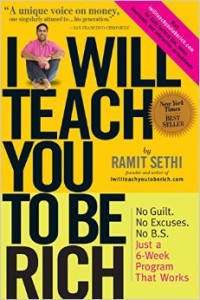 Charlie: Sure. So, the best place for me to start, I guess, is 2008, after I graduated, it was the recession and I spent months kind of banging my head against the wall, blasting my resume out to a bunch of companies I didn’t really want to work and none of them wanted to hire me. So, I started working for free for people who I thought were doing interesting work, guys like Ramit Sethi at I Will Teach You To Be Rich.
Charlie: Sure. So, the best place for me to start, I guess, is 2008, after I graduated, it was the recession and I spent months kind of banging my head against the wall, blasting my resume out to a bunch of companies I didn’t really want to work and none of them wanted to hire me. So, I started working for free for people who I thought were doing interesting work, guys like Ramit Sethi at I Will Teach You To Be Rich.
And Ramit was just getting momentum then. He was getting his start. I started working with him. We did some fun stuff together like we launched his book and it did really well. I worked with Tucker Max, the author of I Hope They Serve Beer in Hell. I helped him with some of the marketing for his film. I was the videographer on his film tour or his movie tour around the country. And then I ended up working with Tim Ferriss. We worked together for three years and I mostly helped him with The 4-Hour Body but we did some other big stuffs too.
And then I got burned out and I took a few months off and tried to go back to work co-founding an app startup with my friend Chad Mureta. He’s an author of App Empire. We did a product launch. It went really well. And then a few months later, I decided I still was burned out and I needed to take some time off. And that’s how I ended up writing Play It Away.
I had written Recession Proof Graduate before that on how to get meaningful work and how to actually land jobs that you want but I hadn’t managed to strike the work-life balance very well and I basically burned myself out completely. And it took me a long time to overcome it and get my motivation back and get my energy back. That’s what that book is about. It’s a really personal memoir on how I did that.
Now, what I’m doing is what you mentioned. I’m doing speaking. I work on individual projects of my own. I consult and help other authors with their marketing strategies and I have a team working with me at BookPop. And, yeah, that’s the broad strokes. And then for fun, I do impromptu comedy and I play basketball. And I live in Austin, Texas. That’s my bio.
John: Austin, Texas. Everybody keeps telling me to move there, so I can get a 10% raise immediately from out here in California. And I’ll tell you what, when July 1st rolls around, I have to say Austin looks pretty darn sweet. So, Charlie, we have a lot of military veterans that listen to this podcast. Can you share any connection that you have with the military?
Charlie: Yes. I’m a speaker for American Dream U. I’ve done a few of their events. Basically, what American Dream U does is they help soldiers and veterans transitioning into the workforce. And their goal is to teach them entrepreneurships so that they can become self starters. Because I really strongly believe that soldiers are some of the most reliable and capable people not just in America but in the planet.
And it’s really unfortunate that the military transition plan for a lot of these soldiers that are effectively getting laid off is, “Well, here’s how to file for unemployment. Good luck.” So I really believe in helping that group. And I actually have another event coming up with American Dream U in November in Las Vegas. The last one we did was at Fort Bragg and we spoke to about 200 soldiers and just did two full days of keynotes and workshops on how to get started as an entrepreneur. So if any of you are looking into that, check that out. It’s good.
John: Yeah. I’d love to do a dive into just your knowledge base, the bank of information that you pulled up for that because our listeners are currently in the military right now. They’re transitioning out as we speak. They’ve already transitioned out but, Charlie, they’re looking for that next big thing. But before we do dive into that, we love sharing a success quote. So do you have a success quote or a mantra that you can share with the High Speed Nation?
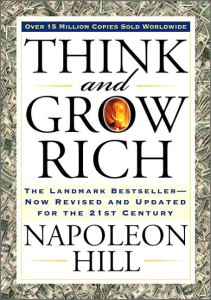 Charlie: Yeah. I would say the one that I kept on my bathroom mirror for over ten years was from Napolen Hill’s Think and Grow Rich, which was:
Charlie: Yeah. I would say the one that I kept on my bathroom mirror for over ten years was from Napolen Hill’s Think and Grow Rich, which was:
“I worked for a menial’s hire, only to learn, dismayed, that any wage I had asked of life, life would have willingly paid.”
John: So, Charlie, that mantra is really powerful for not only just entrepreneurs to understand but for people in general as they go about their journey. With that quote just being timeless, I mean, when was that book written? I think it was back in ’30s or maybe the ’20s.
Charlie: It’s in the ’30s.
John: Yeah. And all of those–
Charlie: During the depression.
John: During the depression in the 1930s, that book was written. And still all of those knowledge bombs that he dropped are so applicable today. I’m sure being a Napoleon Hill fan that you’ve checked this out, but it’s really interesting for a lot of our listeners that may not be so attuned with Napoleon Hill.
Charlie: Outwitting the Devil.
John: Exactly. 70 years, they kept that in the vault.
Charlie: Yes.
John: And finally, in 2011, they released that.
Charlie: I know.
John: The audio version, Charlie, have you checked the audio version out?
Charlie: No. I just read the book and I think that book I’ve underlined more than any other books that I’ve ever read. Seriously. It’s amazing and it so depresses me that they did such a poor job launching it and making the cover. And just how they handled that book launch in general just depress me because Napoleon Hill’s Think and Grow Rich has sold over 70 or 80 million copies. Outwitting the Devil is going to take forever before people discover it because they did such a poor job. It’s an amazing book.
John: They did a horrendous job. But I will say, kind of a side note, Charlie, if you ever want to hear an audio version, they got a James Earl Jones voice sound-alike for the devil.
Charlie: Nice.
John: It’s pretty epic.
Charlie: That’s awesome.
John: So, Charlie, talk to us maybe about something that you’ve really found as impactful when you’re speaking in front of these veterans or these military personnel that are transitioning out. What’s a major thing that does really seem to impact people that you get to speak in front of that really prompts them to action?
Charlie: It’s funny, I just came from speaking at a Montessori school so I was speaking to middle schoolers and high schoolers. And I noticed there was a similarity which is anytime that I’m just standing around telling my story, that works but it doesn’t really hold people’s attention. I have to flip it so that I’m only asking about what their situation is and what they’re working on. I mean, I can talk about specific points but, in general, I found that speaking is the same across the board whether it’s the veterans or 13-year old kids, which is you have to let them interact and be involved and have them talk about their goals and their life and work with them directly for it to really make them want to take action and do something.
John: Well, Charlie, let’s talk about your life then, so you can tell a real story that really can maybe strike and hit home for a lot of listeners. We always talk about the big wins and big book deals and the million dollar. But tell us a story of a time that you, Charlie, didn’t necessarily succeed, that in fact, you failed. Let’s do a deep dive into that story specifically and then walk through some lessons that can be learned from that.
Charlie: Oh, man. It’s funny, I’ve had so many failures and so many walks of life at this point that they typically don’t register as failures anymore. They’re just moments.
But I would say that I had a failure when — I remember when I was working with Tim. It was this dream job that I had working with Tim Ferriss as his director of special projects when I was 25. And I realized I was burned out. I was so terrified of quitting because no one around me was encouraging that to happen. The few people I told were like, “Oh, dude, really? You should stick with it.” And I came about this close to just write — I wrote a letter of why I was quitting and I put all the files, all my work files on to a little USB drive and packaged it up, put it in an envelope and was going to mail it to him.
And then I got a call from my dad while I was walking to the mailbox. He was like, “I just read your letter. Do not do that under any circumstances. That is the cowardly way out. You will burn a bridge if you do this.” I was thinking I’ll just quit and leave him and everything will be fine. So that’s one clear thing to me that comes to mind. Others that are relatable, I would say, in my book Play it Away, I talked about how I was having panic attacks and how I went for over an entire year without telling anybody how I felt.
And it was this source of shame for me, an embarrassment. And I think that was a big failure of mine to not extend, to not really admit anything that I was going through to continually resist what my body was signaling was wrong and to continually resist that. So, I think, that would be ultimately one of my biggest failures was trying to keep going when I was clearly broken for so long. It just made things worse and worse.
John: So I want to dig in here a little bit. I even want to back up more. Just talk about how you initially got the job with Tim Ferriss. Tell us that story.
Charlie: Yeah. Well, like I said, I did some work with Ramit Sethi and Tucker Max and they happen to both be good friends with Tim, which I knew going into it. I was very intentional about how I went about working with Tim. I knew he got hundreds of offers of people who wanted to work with him every year and I knew that I probably wasn’t going to stand out. I was some kid in Colorado. I knew I had to go through his network basically. I had to get the trust of people he trusted and admired and then have them recommend me to him.
John: Such a good strategy.
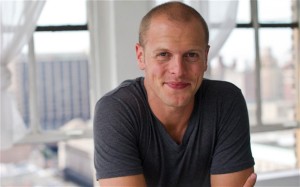 Charlie: Yeah. And so I wrote up a long email to Tim saying, “Hey, I’m Charlie Hoehn. I’m a long time fan. I love what you do. I really believe in it. I know the ins and outs of your brand basically and, I think, there are some areas where you can improve and not only make more revenue for yourself but make your customers much happier. Here are my ideas.” And then I had Ramit for that email on my behalf. And so when Tim said, “Okay, interesting,” and he asked Ramit and Tucker what they thought, they both were like, “Oh, yeah, you want to hire this guy. He’s good.” And I just happened be at the right place at the right time as well because he was moving on to his next project, The 4-Hour Body.
Charlie: Yeah. And so I wrote up a long email to Tim saying, “Hey, I’m Charlie Hoehn. I’m a long time fan. I love what you do. I really believe in it. I know the ins and outs of your brand basically and, I think, there are some areas where you can improve and not only make more revenue for yourself but make your customers much happier. Here are my ideas.” And then I had Ramit for that email on my behalf. And so when Tim said, “Okay, interesting,” and he asked Ramit and Tucker what they thought, they both were like, “Oh, yeah, you want to hire this guy. He’s good.” And I just happened be at the right place at the right time as well because he was moving on to his next project, The 4-Hour Body.
John: So that’s fascinating. Being intentional about that is so critical, High Speed Nation. I mean, really coming up with that plan, understanding how you’re going to get that end point and then going step by step through it. But, Charlie, how did you even get the initial contact with any big name? Who was that first big name and how did you get in their good graces?
Charlie: Well, the initial one was a virtual internship I was doing with Seth Godin. So it was me and 200 other kids for a summer. And by the end of the summer everyone had basically dropped out except me and about ten others. And so I had some credibility there that I could say my name was associated with Seth Godin even though I, at that time, had never even met the guy. I just listened to some Skype calls that he had done and he had given us some advice on what we should work on.
And when I reached out to Ramit, I said, “Hey, I’m a big fan of your work. I love what you do. I just finished up a virtual internship with Seth and I think there’s some stuff that I learned that I can help you with.” So once I had Seth, I then had Ramit and then–
John: Domino, baby.
Charlie: Yeah, exactly.
John: Dominos, love it. Charlie, let’s move forward now. You’ve done a great job painting that picture for people that are maybe starting. You’ve given that path and say, hey, it starts with a foundation. It starts with square one. Build that block one step at a time. Find ways to get into people’s good graces and continue to do that. What I like to say and just touch upon just briefly, because I know that you and I are both running up on our time schedule here, what would you say is the reason you felt burnt out working with Tim Ferriss? I mean, what did those days look like? What were you doing that just really got you to that breaking point?
Charlie: Yeah. So I say this in the book but it’s worth mentioning here too, which is I don’t think it had all that much to do with Tim. I think this was an inevitable point that I was going to hit regardless of who I was working with because of my personality. So what my days looked like were — Initially, when I started off doing the work, I came from a very wholesome good place, I think, for the most part, which was I wanted to do stuff that mattered to me. I wanted to work with people who could raise my game and make me a better person and I wanted to have fun.
And it started off that way. And then we had this huge success with The 4-Hour Body, a book that sold a million copies, hit number one on New York Times, was featured on Dr. Oz multiple times. I was 24 or something at that time and a huge part of my ego accepted that success as my own. And then I went through another success of this event that we put on called the Kimono event, which was a book marketing seminar in Napa Valley.
And I did that entire event with some help from — My assistant was Steve Jobs’ former worldwide event planner for Apple. We killed it. And so, all of a sudden, I became in my own mind this badass who was super dependable, awesome at his job, everyone was congratulating me and a bunch of people asked me, “Where can I get a Charlie assistant?” It all kind of went to my head. And then my days kept being more and more of me working by myself in a caf? or at my apartment drinking coffee all day, three to five cups, and sitting still the whole time barely moving and checking my email the second I woke up and the second that I went to bed, only getting a few hours of sleep and then binge drinking on the weekends. And then doing it every day for months and months and months.
It was normal to me. Normal wasn’t working side by side with Tim the whole time. We were in different parts of the city. But it was normal to me because I was in San Francisco and all of my friends kind of worked this way. They were investment bankers or they worked at startups or they were programmers and it was just like none of us had this healthy work-life balance. And after a while, I just became super anxious and wound up and, I think, a ton of it had to do with the stimulants but a ton of it had to do with the lack of sleep, the lack of movement, the lack of face to face quality interactions.
And suddenly my work was very, very important. It was not about the fun, fulfilling and the meaningfulness of the work. It was about the money. It was about the status. It was about me looking awesome. And so there was this disconnect because I couldn’t have fun anymore because anything that wasn’t related to me making money or advancing my career, I associated with a waste of time or guilt. So sleep became a waste of time for me.
John: Wow. I mean, High Speed Nation, this is priceless as you go down this entrepreneurial path. It’s easy to get excited and caught up in everything. But that’s just not the route you want to go leaving health, fitness, friendships behind. So, Charlie, we just have about two minutes left here. So why don’t you just kind of take the stage right now, share with our listeners your book, how it can impact them and then let’s say goodbye.
Charlie: Totally. Yes. The book I was just talking about Play it Away, again, is the book I wish had existed when I was going through the darkest period of my life.
I wrote it because it was what could have saved me from an entire year and a half, two years of really intense debilitating stress and anxiety and burnout. So if you have any of the symptoms that I just mentioned or if you have the work routine that I’ve just described, you want to check out this book. It will only take you two to three hours to read. It’s $10. Thousands and thousands of people have read it and I receive emails about it every single day. But if you prefer playing games like 배팅사이트 in order to lower stress, then that’s also possible.
If you don’t want to buy the book yet and just want to preview, Google “cure anxiety”. My post is either the number one or the number two post on Google for that search and it’s called: How I Cured My Anxiety by Charlie Hoehn. That will give you a good strong foundation of what the book is about and it contains a four-week plan for a health and happiness for you to get your life back. I’ve had several people tell me it prevented them from committing suicide.
Veterans themselves have reached out to me and really responded positively to it. That’s the first one. And then Recession-Proof Graduate is for people who are transitioning into the workforce and feel clueless, don’t know what to do and don’t want to end up working a corporate job that they hate. They want to explore a different path. That book is about how to go about basically landing any job you want and how to systematically create your own dream career.
John: Well, High Speed Nation, you heard it all right here. Everything that Charlie has been chatting about should be linked up in the show notes. But check this book out. I mean, this could literally, as you heard, be a life saver. It stopped suicides. Charlie, thank you for hanging out with us today, with just spending time letting us know what you’ve been going through and what this book is going to do to change so many lives out there. For that, we salute you and we’ll catch you on the flipside.
Charlie: Thank you, everyone, for listening and thank you so much, John, for having me on. This was a big honor. Thank you.
Veterans, your education doesn’t stop here. Go to highspeedelite.com to join the exclusive veterans’ mastermind that will give you the unfair advantage to succeed in both business and life. We have dozens of training courses, HD videos, a private Facebook group, and the chance to interact daily with John and other successful veteran entrepreneurs every month on live hangouts and webinars.
High Speed Elite is more than a mastermind. It’s your ticket to the land of success.
Are you prepared to ignite? Go to highspeedelite.com today to find out more.
